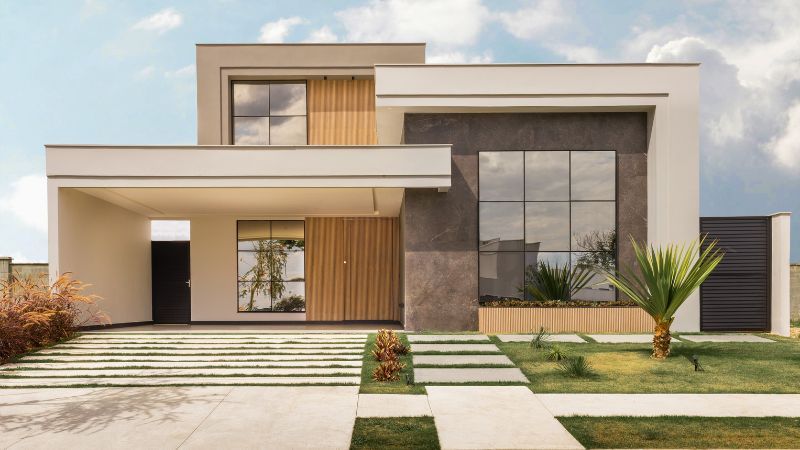Categories
Can I borrow against a property with no mortgage?
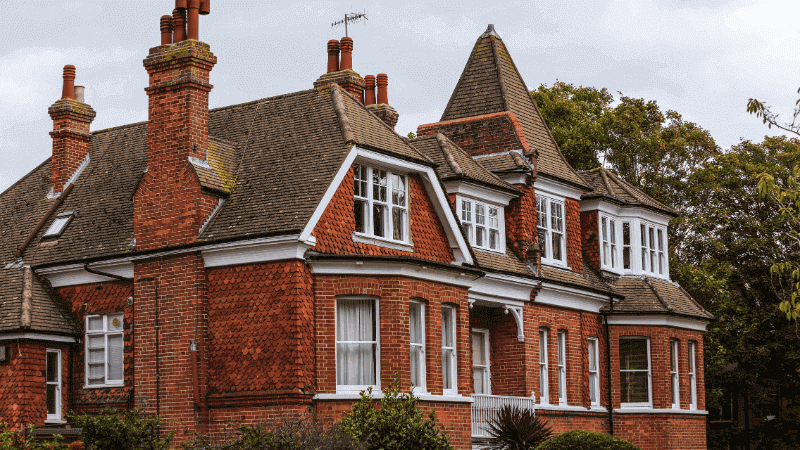
If you own your property outright, you may be wondering if it's possible to buy a property with no mortgage. You'll be pleased to know that it is possible and a few options exist. So what are they?
Many homeowners look to access cash to help get through extraordinary circumstances. From loss of employment to business closure to children struggling with getting on the property ladder…
Or, you might have the opportunity to make home improvements or build an extension – and you want to get on with it now.
If you’ve paid off your mortgage (or have never had one on this property), then sitting on top of 100% of the value of your home puts you in a handsome position to borrow money.
And yet, a couple of the most obvious funding routes – a mortgage extension or a second-charge loan sitting behind your first charge mortgage – aren’t available to you.

Skip to:
How can I borrow against a property with no mortgage?
How to get a lifetime mortgage
How to get a second-time mortgage
How to get a first-time mortgage
Raise capital with short-term finance
How can I borrow against a property with no mortgage?
So, what are the other ways you can access the value stored in the market price of your home?

Are you over 55 and wouldn’t be able to afford monthly payments on a new mortgage on your house? Skip to our Lifetime Mortgage solution.

Have you paid off your mortgage on your house but now want to raise capital secured against it? Skip to Second-time mortgage and RIO mortgage.

Can you afford monthly repayments and want to take out a first mortgage on your home? Skip to First-time mortgage.

Do you need short term finance quickly? Skip to Bridging loans.
How to get a "Lifetime Mortgage" on your home
A lifetime mortgage is a type of equity release for borrowers aged between 55 and 95. It can allow you to release cash tied up in your home as a tax-free lump sum or as an initial sum followed by periodic smaller payouts to you.
Effectively it's a loan secured against your home, usually repaid when you pay off the plan, you die, or you go into long-term care.
- You don’t need to have completely paid off your mortgage to be eligible. If you have enough equity built up in your home, the Lifetime Mortgage payout can be used clear the outstanding amount on your original mortgage.
- You retain full ownership of your home.
- A major plus: you don't have to prove affordability. The lending isn't conditional on your income.
- The amount you can take out of your home will depend on your age and the value of your property.
- The older you are, the more you can borrow. If you have a medical condition, you may be able to get an enhanced payment.
- Interest is charged on the amount you’ve borrowed, which can be repaid or added to the total loan amount.
- If you can afford it, you may have the option of repaying the monthly interest, slowing down the increase in the loan.
Q: I’m retired and own a mortgage-free property valued at £350,000. Can I get a loan or a mortgage to build an extension my son will move into? I’ve been told I can’t get a remortgage because I don’t have a mortgage in the first place, and I’m 66.
A: You’ll need to check planning permission as to whether this counts as a separate dwelling. The amount you’re looking to borrow is too big for a personal loan from your bank: the usual limit is £25K, and it would need to be repaid in 5 years, with set monthly payments of capital and interest.
A lifetime mortgage would allow you to borrow the money with no monthly repayments: the loan plus rolled-up interest is repaid when the plan ends.
Read our blog on mortgages for ages 70+
Read our blog on equity release
Our equity release mortgage service
How to get a "Second-time mortgage" on a property you own outright
If you’re able to afford small monthly repayments, you have a few very useful options:
- A standard, small mortgage using your income to make repayments, as though your home was a new purchase. This might be referred to by lenders as an Unencumbered mortgage or a Remortgage (even though it technically isn’t a re-mortgage since there isn’t a first mortgage).
- A Retirement Interest Only (RIO) mortgage. Designed for home buyers or homeowners on a retirement income who can’t afford to keep up with a standard repayment mortgage. When you die or go into long-term care, your property is sold and the mortgage paid - anything left over becomes part of your estate.
Q: I want to save my daughter the uncertainty of renting and help her to buy her own home. I have a reasonable income from pensions and investments, but not enough to give her a cash payout (she'll need about £30,000 as a deposit). My house is worth around £450,000. I’m 67. Would anyone give me a mortgage?
A: If you can afford the repayments, several lenders are offering “later life” mortgages of 10 or 15 years (sometimes longer) that will last until borrowers are in their 80s or even 90s. Or, you could consider a Retirement Interest Only mortgage.

How to get a "First-time mortgage" on a property you own that’s never been mortgaged
A first-time (rather than a remortgage) is what you’re looking for if:
- You were gifted/inherited the property in the past
- You bought your home for cash
This will operate just like a mortgage you might take out on a property you’re buying – and in essence, will be very like a second-time mortgage above.
Q: We’re living in my mother’s house, which we inherited, so we’ve never had a mortgage on it. (We used the proceeds from the sale of our previous home to invest in our business.) Now, we want to give some money to our children – can we get a mortgage on a house we already own? Do we have to “sell” it to ourselves?
A: It’s not a completely standard mortgage, but it’s very straightforward, and no – you don’t have to sell the house to yourselves.
Our first time mortgage service
How to raise capital fast with short-term finance
Short-term property finance is also known as "bridge finance" or a bridging loan.
This is different to a standard mortgage – the amount you can borrow is assessed against the value of a property you can offer as security, rather than your earnings.
Some common uses for bridging loans are:
- To help children (who may have lost jobs or cannot keep up with mortgage/bills etc.)
- If you’re aiming to sell up and downsize, but you want to access cash sooner than your sale will be completed
- You want to forward-borrow from a payout you’re expecting in the future (such as a lump sum pension payout)
- You want to make home improvements now, while you have time available, or subdivide your home (subject to planning permission)
Q: My son has lost his job, and his wife is at home with their young child. I know they’ll get back on their feet, but in the meantime, they need help with their mortgage payments. I want to give them some help now. I’ve only got the value of the home I’m living in.
A: Depending on the value of your home and how much you want to lend your son, it should be possible to access money quickly, secured against your home. But you will need to be able to repay it within 12 months. Do you have any lump sum payments due (an inheritance, perhaps?), or are you planning to sell up and downsize?

You need to have an agreed, cast-iron "exit" strategy for repaying the loan within 12 months (the loan period is limited to a year for "regulated lending" secured against your own home:
- The sale of the property might be considered risky unless the property market is buoyant and your home is already on the market or is ready to go on the market.
- You’ll need to provide evidence of an expected windfall payment.
- Or be able to show that the property can be remortgaged to pay off the finance – and that you'll be able to afford the mortgage payments.
Check out our bridging loan case studies for some real-life examples.
Our short-term finance service
Contact Clifton Private Finance
If you want to learn more about borrowing against unmortgaged properties or you're not sure what to do next, working with an experienced broker can help.
At Clifton Private Finance, we have a wealth of industry experience and relationships with a wide range of mainstream and specialist lenders. A good broker could get you access to deal that may not otherwise have access to.
Whether you're just exploring the possibilities or you're ready to start looking for a finance solution, get in touch for a no-obligation consultation below.
0117 959 5094
FAQs
Can you borrow against a property you own outright?
Yes, you can borrow against a property that you own outright. When you own a property outright, it means you have paid off the mortgage or purchased the property with cash, and there is no outstanding loan on the property.
Borrowing against a property you own outright typically involves taking out a new loan or line of credit, using the property as collateral. The types of loan that are commonly used in these circumstances are a "home equity loan" or a "home equity line of credit" (HELOC).
Can you remortgage a property with no mortgage?
Yes, it is possible to remortgage a property you own outright. Because the property has no previous debt, this is known as an unencumbered remortgage.
Remortgaging is the process of replacing an existing mortgage with a new one, typically to take advantage of better interest rates, different loan terms or to release equity from your property.
Because you don’t have a current mortgage on your property, an unencumbered remortgage isn’t technically remortgaging, but many lenders refer to it this way. And since you already own 100% equity in the property, you’ll likely have access to lower rates.
Can I get a secured loan without a mortgage?
You can get a secured loan without a mortgage. A mortgage is a type of secured loan, but you don’t need to have a mortgage on your property to use it as collateral for a different type of loan.
Secured loans use a valuable asset as collateral to offset any risk on the lender’s side. This means that if you fail to repay your loan, the asset you use to secure the loan will be at risk of seizure.
Aside from mortgages, some other types of secured loans are home equity loans, bridging loans, debt consolidation loans, car title loans. Some of these loans can be unsecured, but in many cases, this will mean they have higher interest rates and potentially stricter eligibility criteria.
Can I borrow money against my house to buy another property
You can borrow against your house to buy another property. Using equity in your home to invest in property is quite common and can be done through remortgaging or equity release.
If you have a mortgage, the amount you'll be able to borrow to invest in a property will depend on how much of your mortgage you’ve paid off. If you don’t have a mortgage, there are options available, such as taking out a first charge on your property (also known as an unencumbered remortgage) or using bridging finance, for example.

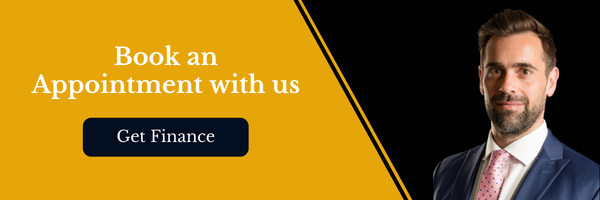
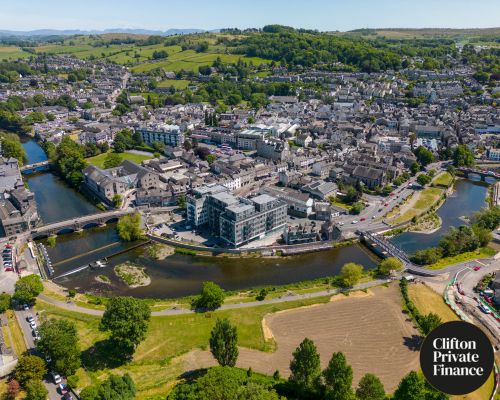

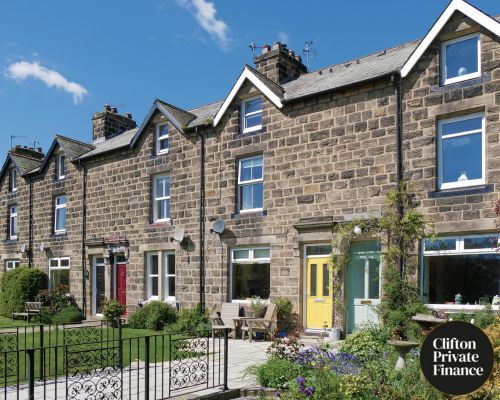


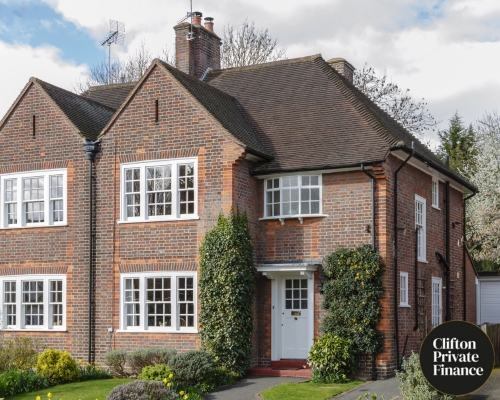

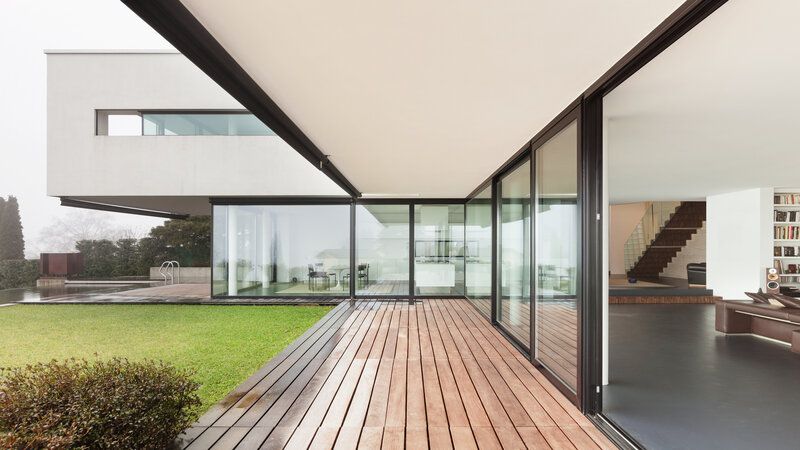
.png)
